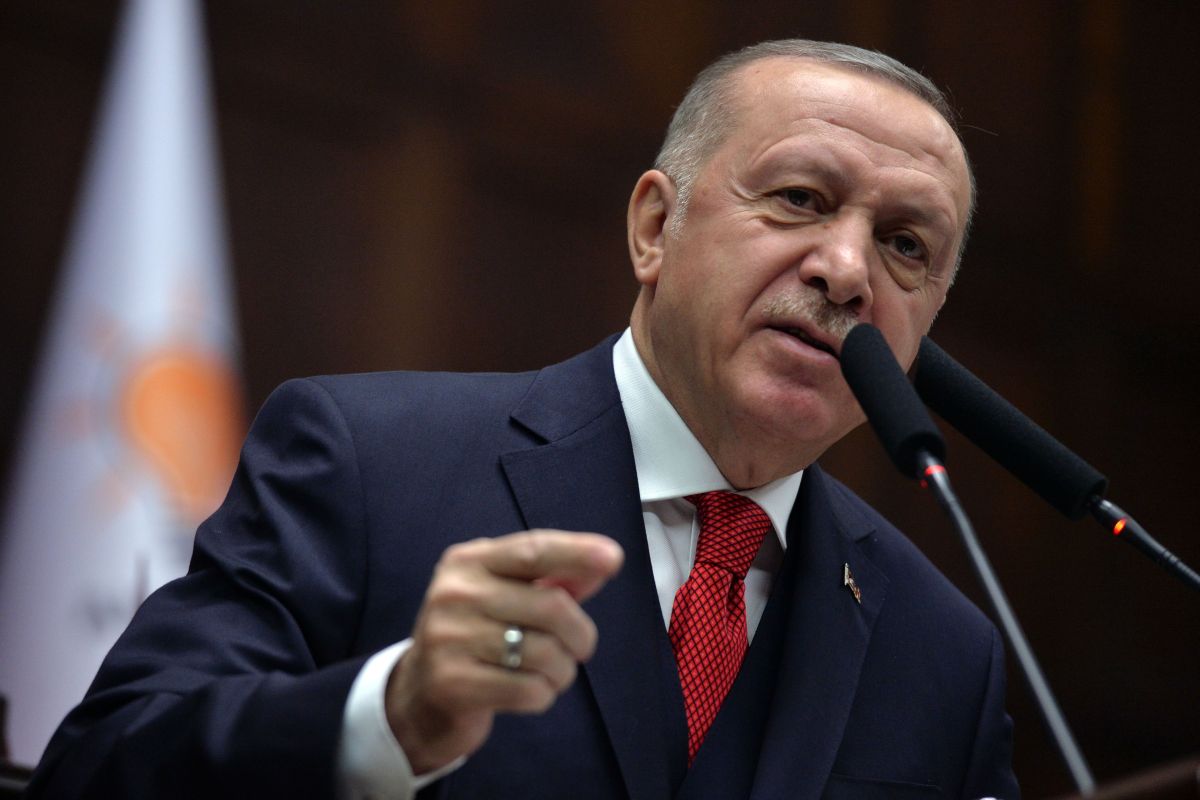4.8-magnitude quake hits Andaman Islands
A medium-intensity earthquake measuring 4.8 on the Richter Scale jolted the Andaman Islands region in the early hours of Wednesday.
Double-digit inflation, rampant nepotism, wide-spread corruption, and the government’s inadequate response to the earthquake has left the ruling Justice and Development Party (AKP) in a situation where the number of applicants to contest for seats on the AKP ticket is much lower than in previous elections.

Turkish President Recep Tayyip Erdogan (Photo: IANS)
After a 20-year reign, Turkish President Recep Tayyip Erdogan is heading into the country’s 14 May General Election no longer regarded as a shoo-in. So, what has changed for the political strongman, as he is characterised by his supporters, who credit him with the vision to make Turkey a major power in the 21st century even if the earlier grandiose rhetoric of the country emerging as a lat- ter-day Ottoman Empire has subsided somewhat? There is broad consensus that the immediate cause for the disenchantment with Mr Erdogan, who is the only head of government millions of votingage Turkish citizens have ever known, has been the devastating earthquake of 6 February.
Opinion polls also show the six-party Opposition alliance well ahead and poised to win. As Brookings scholar Asli Aydintasbas who is working on the institution’s Turkey Project brings out in a recent article, Erdogan’s hyper-centralized and dysfunctional governance system is blamed by many for the high number of casualties that the temblor left in its wake. She adds that in her interviews with journalists, Opposition leaders, and even bureaucrats serving under the current regime, there was almost a blind conviction that the upcoming vote would prove to be the president’s last stand. But Mr Erdogan has been written off before and the appeal of his Islamist welfare agenda especially in the Turkish countryside cannot be underestimated. That the poll will be very close, however, is likely.
Double-digit inflation, rampant nepotism, wide-spread corruption, and the government’s inadequate response to the earthquake has left the ruling Justice and Development Party (AKP) in a situation where the number of applicants to contest for seats on the AKP ticket is much lower than in previous elections. The forthcoming election, whichever way it goes, will have a huge impact domestically. Equally, the poll result will be of consequence in the emerging global balance of power. Turkey under President Erdogan has begun to see itself at the head of the Muslim World and much better placed to lead the Sunni bloc than Saudi Arabia. While China has been making overtures to Turkey, Ankara knows it needs an infusion of capital from the West and international financial institutions controlled by western powers to prevent an economic crisis of magnitude. But Russia, which is now firmly in the China camp, is a rival for Turkey in the former Soviet Central Asian States and the Black Sea.
Advertisement
How the incoming government next month, whether led by Mr Erdogan, or his challenger Mr Kemal Kilicdaroglu, the soft-spoken social democrat, balances this equation is the key. The geographical location of the country at the meeting point of East and West has immense strategic value as Turkey con- trols access to the Bosphorus and Dardanelles straits. The Turkish Straits’ significance lies not only as an economic corridor but also in their geopolitical value because they link energy-source regions with energy- demanding countries. That is a critical factor in the evolving global strategic competition and one Turkey will do everything within its power to leverage.
Advertisement